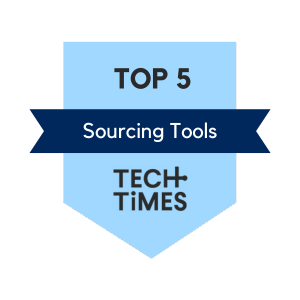Found a remote job opportunity as a Spanish translator or data entry clerk that promises great pay and benefits? BEWARE—scammers are targeting job seekers on trusted platforms like ZipRecruiter and Indeed. They’ll impersonate real employers, set up fake interviews, and send realistic-looking paperwork—all to steal your personal information and money.
Here’s how to identify these scams and protect yourself.
8 Common Job Scams to Watch Out For
Email Offers
Fraudulent recruiters may contact you via email claiming to have found your resume, asking for sensitive information like your ID or bank account details.
Informational Material Scams
Scammers promise helpful resources—often in return for payment—that are typically available for free.
Online Messaging Service ‘Interviews’
You may be invited to a messaging app for an “interview” where personal information is requested to “set up” the process.
Money Laundering Schemes
Some scammers offer to send funds to your account to transfer elsewhere, masking their intention to extract bank information.
Credit Report Scams
Scammers claim that a credit report is required and direct you to pay for one or use a specific service, charging hidden fees.
Career Consulting Fraud
Fake consultants praise resumes, offering costly “expert” services to improve them.
Work-From-Home Scams
Remote job seekers are often promised earnings after paying upfront fees or buying supplies—common in pyramid schemes.
Shipping Fraud
Victims unknowingly re-ship stolen goods at personal cost, with no compensation in return. Stay vigilant. If something feels off, it probably is. Always research the opportunity and never pay upfront for a job.
5 Tips to Protect Yourself from Job Scams

One of the most effective tactics for protecting yourself from scams is protecting your personal information online. For example, after activating private mode on an iPhone, you leave fewer traces, which means your chances of receiving a phishing email and facing other cyber risks are reduced significantly. Also, adjusting the privacy settings on iPhones or other devices can reduce exposure to such attacks, ensuring your personal data remains secure. Using a VPN can also hide the identity and information about the user.
If you want a reliable VPN option, consider choosing one with strong encryption and a no-logs policy to keep your data secure. Cybernews’ Surfshark review provides insights into its features, security, and overall performance.
Here are essential tips to identify and avoid fraudulent job offers:
Research the Company
Before applying, verify the company’s legitimacy. Use online resources like their official website, LinkedIn, or social media accounts to cross-check information. For example, check if the email handle matches the organization’s domain. A mismatch could signal a scam.
Beware of High Pay for Minimal Work Offers
Not all job offers are as good as they seem. Protect yourself by applying this rule: “When in doubt, throw it out.”
Key tips to stay safe:
- Research the Company: Look up their website, social media, and reviews. Credibility gaps can be a major red flag.
- Guard Your Info: Never share personal or financial details before receiving a formal job offer.
- Watch for Red Flags: Be suspicious of roles promising high pay for minimal effort or those asking for upfront payment.
Trust your instincts. If something feels off, ask questions and proceed with caution.
Check Website Security
Always ensure the website is secure. Legitimate sites will start with “https://,” not “http://.” Tools like domain age checkers can assess the site’s credibility by revealing its history and ownership details.
Trust Your Gut
Even if a company seems legitimate, pay attention to any feelings of doubt or discomfort. Suspicious job listings or messaging could indicate misaligned values—or a scam. When in doubt, walk away.
Avoid Companies Asking for Too Much Personal Information Early
A trustworthy company values transparency in its hiring process. This includes being clear about their identity, mission, job descriptions, and salary details. Be cautious of businesses that ask for excessive personal information before making an official offer or that avoid face-to-face interactions during the interview process. Protect your privacy—credible employers will prioritize professionalism and clarity from the start.
Protect Your Personal Information
Never share sensitive details such as your social security number, bank account information, or credit card details. True employers only ask for these after a formal job offer—not before.
Verify Contact Information
Always ensure the contact details in job listings match the official information provided by the company. Scammers often use similar domain names or include a brand’s name to appear legitimate. Double-check that the email address and reply-to address use the company’s correct domain (e.g., name@cjpi.com rather than a misleading derivative). If you have any doubts about the job offer, take an extra step and contact the company directly using verified contact information from their official website. This simple action can help confirm the authenticity of the opportunity and protect you from potential scams.
Be Cautious with Online Opportunities
If something seems too good to be true, it probably is. Stay alert, especially when approached by companies that promise easy money in exchange for recruiting others. These pyramid schemes often fail and leave most people at a loss.
Before committing to anything, carefully read reviews on trusted platforms. If others report not getting paid, chances are, you won’t either. Lastly, remember this rule of thumb—legitimate companies should pay you, not the other way around. Protect yourself by staying informed and skeptical of suspicious offers.
Never Pay to Apply for a Job
Legitimate employers will never demand money for applications, interviews, or background checks. If someone requests payment, treat it as a serious warning sign and avoid proceeding. Not only is this unethical, but in many countries, including the United Kingdom, it’s outright illegal. Stay vigilant and protect yourself from scams.
Red Flags to Watch For
- Unusually Fast Process: After applying, scammers will rush to schedule an interview via apps like Signal Messenger or other text-only platforms.
- Overly Simple Interviews: You might answer a few quick questions, and suddenly—congratulations, you’ve “got the job!”
- Requests for Sensitive Information: They’ll pressure you to submit direct deposit and tax forms, asking for your bank account details and personal information.
- Too Good to Be True Offers: Scammers may send you a large check to “set up your home office.” Once you cash it and take action, you’ll realize the check is fake, but by then, they’ve stolen your data.
Conclusion
Protect yourself by staying vigilant. Always verify employers independently and watch out for exclusive communication through unofficial platforms. If something feels off, trust your instincts—real opportunities won’t require you to compromise your safety. Stay informed, stay protected.
Talentprise: Your Trusted Partner for Secure Job Searches
Talentprise is a secure and private AI-powered career platform that connects job seekers with tailored opportunities while safeguarding their personal data. Your profile and activities remain completely confidential and are never shared publicly or indexed by search engines like Google. Talentprise ensures your personal information is protected with advanced encryption and secure protocols, keeping your data in safe hands. By maintaining a secure and private environment, Talentprise offers a trustworthy space for your job search, empowering you to explore opportunities with confidence and peace of mind away from job scams.
Are you looking for a job? Sign up for a free account at Talentprise.

Editorial Team
Our team is fueled by a passion for crafting valuable content that enriches the experiences of our users, customers, and visitors. We meticulously select meaningful and unbiased topics ranging from tips and guides to challenges and the latest in technology, trends, and job market insights. All curated with care and affection!








